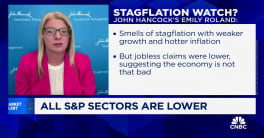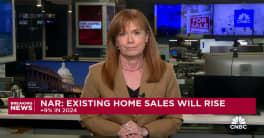The Conference Board's U.S. consumer confidence index for August improved to 56.9 in Tuesday's report, higher than the expected improvement to 53.0.
One-year inflation expectations fell back to a five-year low of 6.7%, following July's 7.5%.
The previous month's headline reading of 51.9 was unrevised. One year ago, the index stood at 105.6.
The expectations category improved to 52.8, up from 42.7 in July, but the present situation component fell to 63.2 from 65.8.
"Consumer confidence readings suggest that the economy remains stuck in neutral, but may be showing signs of improvement by early next year. Declines in the Present Situation Index, both in terms of business conditions and the labor market, appear to be moderating," said Lynn Franco, director of the Conference Board's Consumer Research Center.
"The Expectations Index, which posted a significant gain this month, suggests better times may be ahead. However, overall readings are still quite low by historical standards and it is still too early to tell if the worst is behind us," she added.
Consumers' appraisal of the job market continued to be pessimistic in August, with those saying jobs were "hard to get" increasing to 32.0% from 30.2% and those claiming jobs were "plentiful" decreasing to 13.1% from 13.6%.
Respondents claiming business conditions were "bad" decreased to 25.8% from 32.4% while those claiming business conditions were "good" increased to 11.9% from 9.2%.
In the labour market, consumers expecting fewer jobs in the months ahead fell to 30.6% from 37.3%, while those anticipating more jobs rose to 10.5% from 8.0%. Meanwhile, the proportion of consumers expecting their incomes to increase saw a slight gain to 14.7% from 14.3%.
Before the economic turmoil began, the Conference Board's consumer confidence index reached an annual high of 111.9 in June 2007. The subprime crisis created a four-month decline to 87.0 in November before rebounding by a few points prior to the holidays. The index then resumed its downward trend in January, falling to 50.4 from 87.9 in the first six months of 2008.
Earlier in the month, the preliminary University of Michigan and Reuters Consumer Sentiment survey improved half a point to 61.7.
By Stephen Huebl and edited by Nancy Girgis







